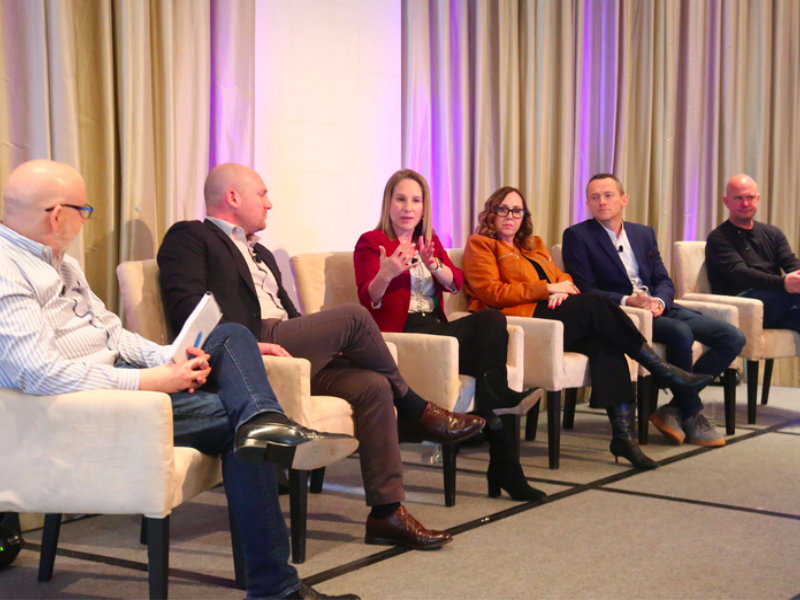Diana Marszalek 12 Feb 2020 // 10:54PM GMT

CHICAGO — Even as the communications business is being upended by the likes of purpose, measurement and data & analytics, the future viability of the industry will still likely boil down to core components such as authenticity, trust and being able to tell a really good story.
“A great story well-told that connects with consumers emotionally drives results,” said Sonos marketing & communications head Pete Pedersen. “That hasn’t changed even though the tools have.”
Pedersen’s comments were part of a panel discussion about the future of marketing and communications Wednesday at PRovoke Media’s North America conference in Chicago. The session, which was sponsored by Kivvit, was a far-reaching discussion touching on how communications is being impacted by new demands and technology — and where it goes from here.
Panelists represented companies in a range of sectors — Hyatt, Mars Wrigley and Exelon in addition to Sonos, as well as the agency Kivvit. In turn, they also came to the discussion with a range of perspectives, but also different challenges and tactics that are unique to the industries in which they work.
Take, for instance, participants’ responses when addressing questions about corporate communicators’ responsibility to the bottom line, and how it affects their work particularly when it comes to adopting purposes and executing CSR initiatives.
As a family owned company, Mars Wrigley has the ability to make decisions based on values, and the long-business reputation of the business, said VP of north America corporate affairs Lee Andrews.
And Sonos follows the lead of its CEO Patrick Spence who "doesn’t really care what investors think and driving business for quarterly results," Pedersen said. “We believe truly, deeply if we serve our customers well … then the share prices will take care of itself.”
Yet technology has upped expectations when it comes to proving the value of communications, be it through data that supports the launch of initiatives to measurements that show whether they work.
“We are being asked to measure our work more and more with specific results and metrics. This is a longstanding challenge in our business but we are doing all we can to show the value we provide,” said Exelon senior VP of corporate affairs, communications and philanthropy Judy Radar.
Yet, there are inherent risks to working in communications, and making those moves that put the company out there, particularly when it comes to taking stands on issues.
For Kathy Krenger, Hyatt’s senior VP of global communications, one such occasion occurred when she lobbied company leaders to create a policy regulating hate groups’ use of hotel facilities. “Turning people away has just as many risks if not more as bringing people in,” she said.
Yet Krenger said, particularly as a company so reliant on employee/customer engagement, she could not justify taking money from groups that preach hate against the very people Hyatt services. The fact that was in line with Hyatt’s values made it easier to convince the company to take the stand.
“The risk you take is when you take a stand for something that isn’t true to who you are — and you get called out for it,” she said.
Andrews echoed that sentiment. "You have to be authentic when talking about the brands. M&Ms is a light-hearted brand, it won't be the brand that saves the world. But it can have a role in attracting attention to issues that can help people,” he said.


































.jpg)


















